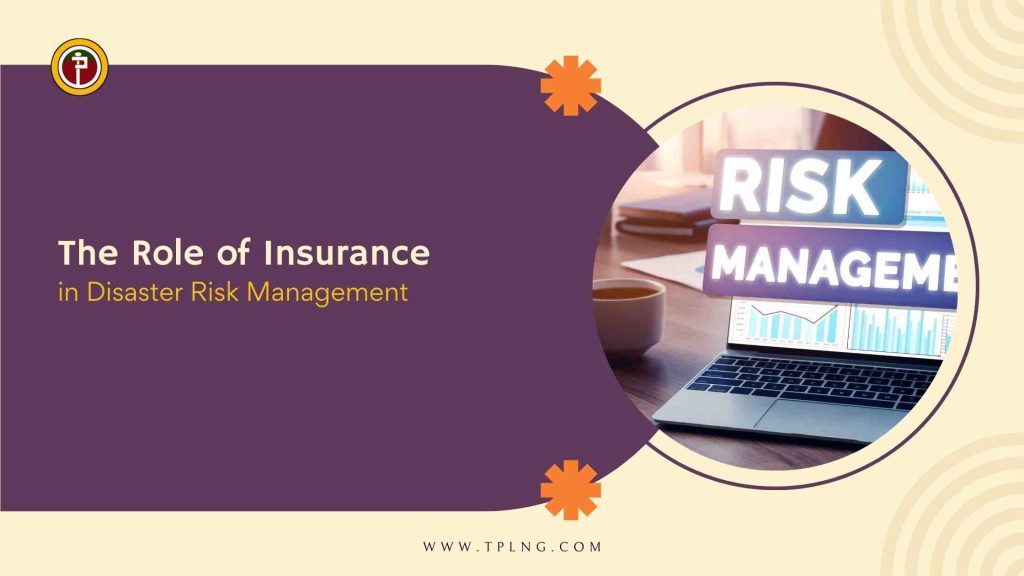In a world where natural and man-made disasters pose significant threats to communities and economies, disaster risk management (DRM) has become a crucial element in safeguarding lives and assets. Insurance plays a pivotal role in DRM by providing financial protection, promoting resilience, and supporting recovery efforts.
This comprehensive exploration will delve into how insurance contributes to disaster risk management, highlighting its importance, mechanisms, and benefits.
Understanding Disaster Risk Management (DRM)
Disaster Risk Management encompasses a range of strategies and actions aimed at minimizing the impact of disasters and ensuring a swift and effective recovery. It involves risk assessment, mitigation, preparedness, response, and recovery. DRM is a multi-disciplinary approach that integrates various stakeholders, including governments, organizations, communities, and individuals.
Also read A Guide to Insurance for Parents and Guardians
The Role of Insurance in Disaster Risk Management
1. Financial Protection and Risk Transfer
Insurance is a primary tool for transferring financial risk from individuals and businesses to insurance companies. By purchasing insurance policies, entities can protect themselves against the financial losses that result from disasters. This protection covers various aspects, including property damage, business interruption, and loss of income.
2. Encouraging Risk Reduction Measures
Insurance companies often encourage policyholders to adopt risk reduction measures by offering discounts or incentives. This proactive approach helps reduce the likelihood and severity of damage. For example, insurers may offer lower premiums for properties equipped with disaster-resistant features or for businesses implementing disaster preparedness plans.
- Building Codes and Standards: Insurers may advocate for stricter building codes and standards to enhance structural resilience.
- Community Programs: Support for community-based risk reduction programs can include funding for infrastructure improvements or disaster preparedness workshops.
3. Supporting Recovery and Reconstruction
After a disaster, insurance plays a crucial role in the recovery and reconstruction phases. The financial resources provided by insurance claims enable affected individuals and businesses to repair or rebuild, thereby accelerating the return to normalcy.
- Claims Processing: Efficient and transparent claims processing ensures timely financial assistance, which is essential for swift recovery.
- Reconstruction Support: Insurers may offer additional support for rebuilding efforts, including technical advice and assistance in navigating regulatory requirements.
4. Promoting Economic Stability
Disasters can have far-reaching economic impacts, affecting local and national economies. Insurance helps stabilize economies by providing financial support that reduces the burden on government resources and prevents economic disruptions.
- Economic Continuity: By compensating for losses, insurance helps businesses resume operations quickly, preserving jobs and economic activity.
- Government Support: Insurance reduces the need for government intervention and emergency funding, allowing public resources to be allocated to other critical areas.
5. Encouraging Risk Awareness and Education
Insurance companies often engage in educational initiatives to raise awareness about disaster risks and preparedness. This includes providing information on how to minimize risks, understand policy coverage, and prepare for potential disasters.
- Public Awareness Campaigns: Insurance companies may run campaigns to educate the public about the importance of insurance and disaster preparedness.
- Training and Workshops: Providing training for businesses and communities on disaster risk management and insurance options.
Also read Understanding Insurable Interest in Nigerian Insurance
Challenges and Opportunities
While insurance is a powerful tool in DRM, there are challenges that need to be addressed:
- Affordability: The cost of insurance can be a barrier for some individuals and businesses, particularly in developing regions.
- Coverage Gaps: Some risks may not be adequately covered by standard insurance policies, requiring innovative solutions.
- Awareness: There is often a lack of awareness about the benefits of insurance and how it can be integrated into disaster risk management strategies.
To overcome these challenges, there is an opportunity to develop more accessible and affordable insurance products, enhance public education, and foster partnerships between insurers, governments, and communities.
Types of Insurance for Disaster Risk Management
- Property Insurance: Covers damage to buildings and contents.
- Liability Insurance: Covers legal liabilities for accidents or injuries.
- Business Interruption Insurance: Covers lost income due to business disruption.
- Life Insurance: Provides financial support for families in the event of loss of life.
- Agricultural Insurance: Covers crop failures and livestock losses.
Also read Understanding The Impact and Implications Proximate Cause in Nigerian Insurance
Benefits of Insurance in Disaster Risk Management
- Reduces financial burden on governments and individuals
- Promotes disaster preparedness and mitigation
- Supports economic recovery and stability
- Enhances resilience and adaptability
- Encourages sustainable development practices
In conclusion, insurance is an integral component of disaster risk management, providing financial protection, promoting risk reduction, supporting recovery, and contributing to economic stability. By understanding the role of insurance and leveraging its benefits, individuals, businesses, and governments can better prepare for and respond to disasters, ultimately building more resilient communities and economies.
At Transparent Protection Ltd, we are committed to driving awareness and education about insurance to help you make informed decisions and protect what matters most.
Stay tuned to our blog for more insights and updates on how insurance can play a crucial role in your disaster risk management strategy.
Take advantage of the next article, subscribe now!
Have questions about claim settlements or need assistance with your insurance policy? Our team is here to help! Reach out to us via email at info@tplng.com or give us a call at 0905-776-6182. We’re committed to ensuring genuine claim settlements and supporting our valued members.
TPL, your satisfaction is our priority.




